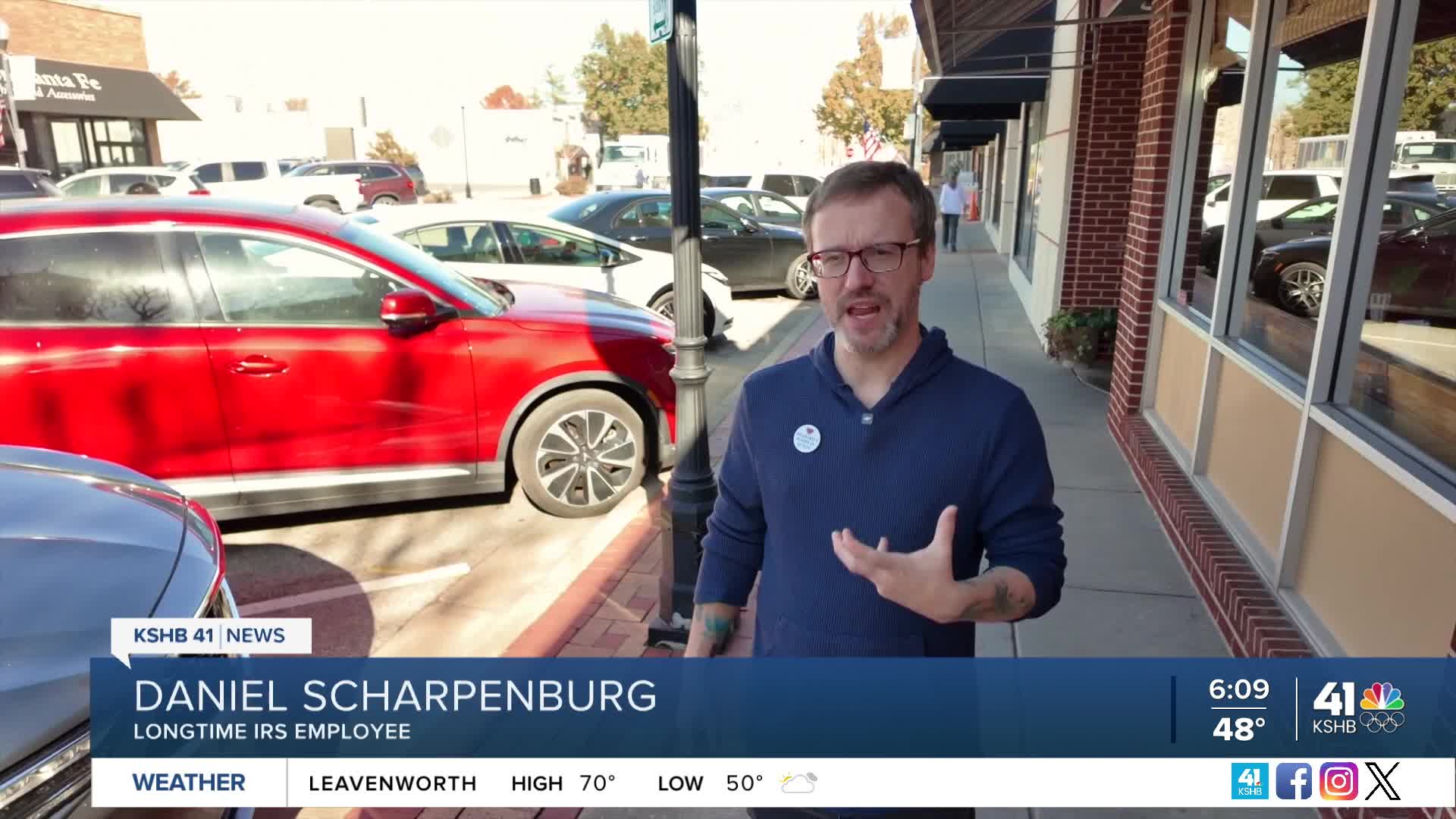KSHB 41 reporter Grant Stephens covers stories of consumer interest. Share your story idea with Grant.
—
The longest government shutdown in U.S. history came to an end this morning, sending thousands of federal employees - including staff at the Internal Revenue Service - back to work for the first time in 44 days.
For longtime IRS employee Daniel Scharpenburg, the reopening marks the end of a scramble to make ends meet.
“I and many of my coworkers have been out of the office for over 40 days, so all our routines have been disrupted. And that's, you know, that's minor compared to things like not getting a paycheck, but it is going to take a minute to get back into the swing of things, and to get to work in the morning and work a day, and I'm probably returning to work to 500 emails,” Scharpenburg said.
The return to the office comes with twin backlogs - the hundreds of messages and dozens of tasks waiting at the office, and a stack of overdue bills at home.
Scharpenburg said he deferred most of his expenses and relied on charities to help with food and household needs.
“I was able to get my expenses deferred, almost all of them. So that helped a lot. And then I was able to rely on charities for food and household items,” he said. “Some people took loans that have interest because they had to, and no shame on them. They had to, and they're going to have to be working on getting caught up.”
The financial strain has been coupled with deep frustration at how public servants are treated time and time again during shutdowns.
“Every time the government shuts down, we feel like we're we are bargaining chips. We are the ones with the feet on our necks waiting for it to end. And we've just seen that again. We were bargaining chips in this shutdown,” Scharpenburg said.
“We should be treated like people. We shouldn't be treated like we are just another number on a spreadsheet, just something to weigh against.”
Charities that stepped in during the shutdown may still have a role to play. Scharpenburg believes many federal workers will rely on donations for at least a month while they work to cover overdue bills and rebuild financial stability.
As he heads back to the IRS office, Scharpenburg’s hope is simple - that the experience will be a reminder in Washington of the human cost behind political gridlock.
“Washington needs to know that we're real people, and they've made us suffer for over 40 days,” he said.
—






